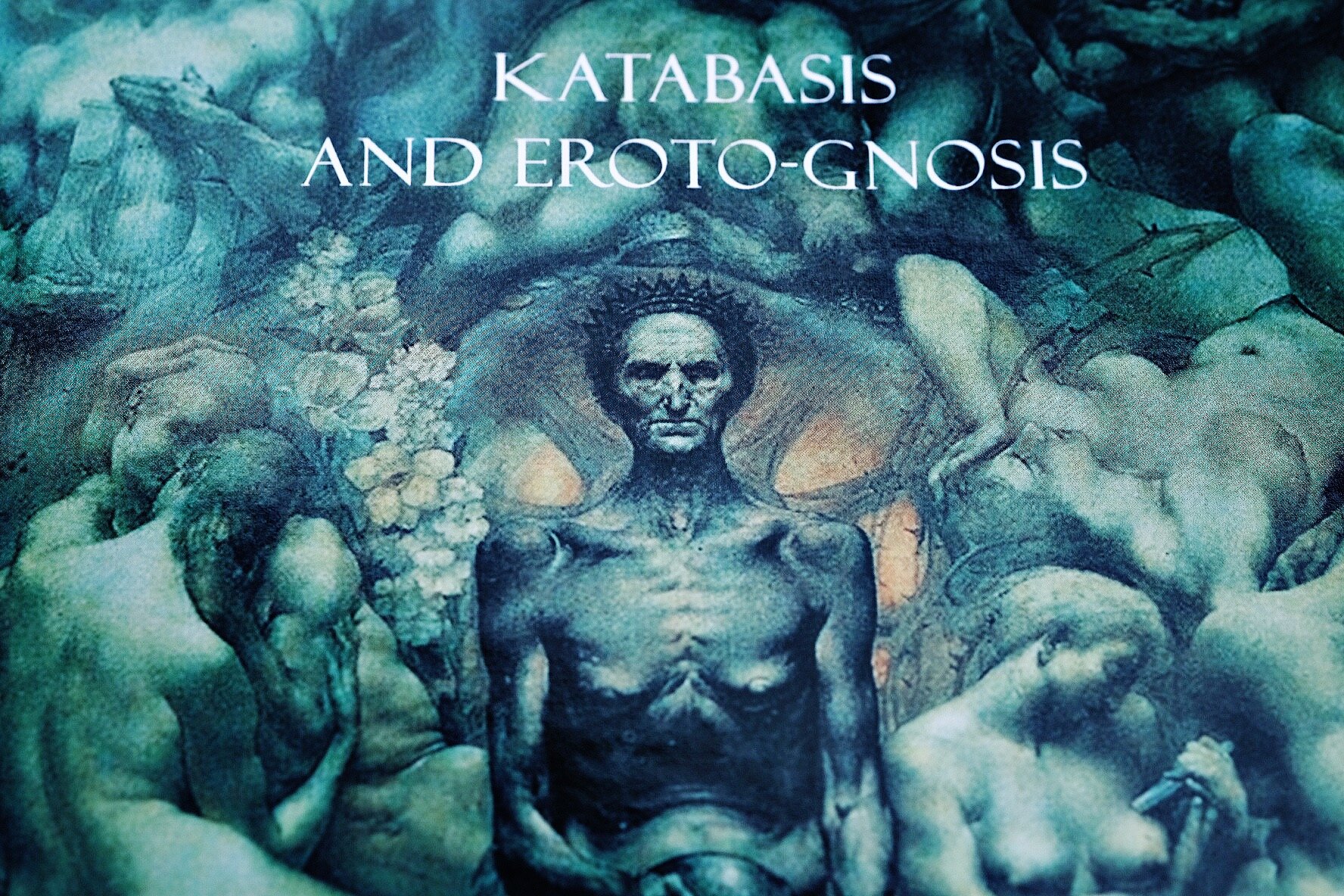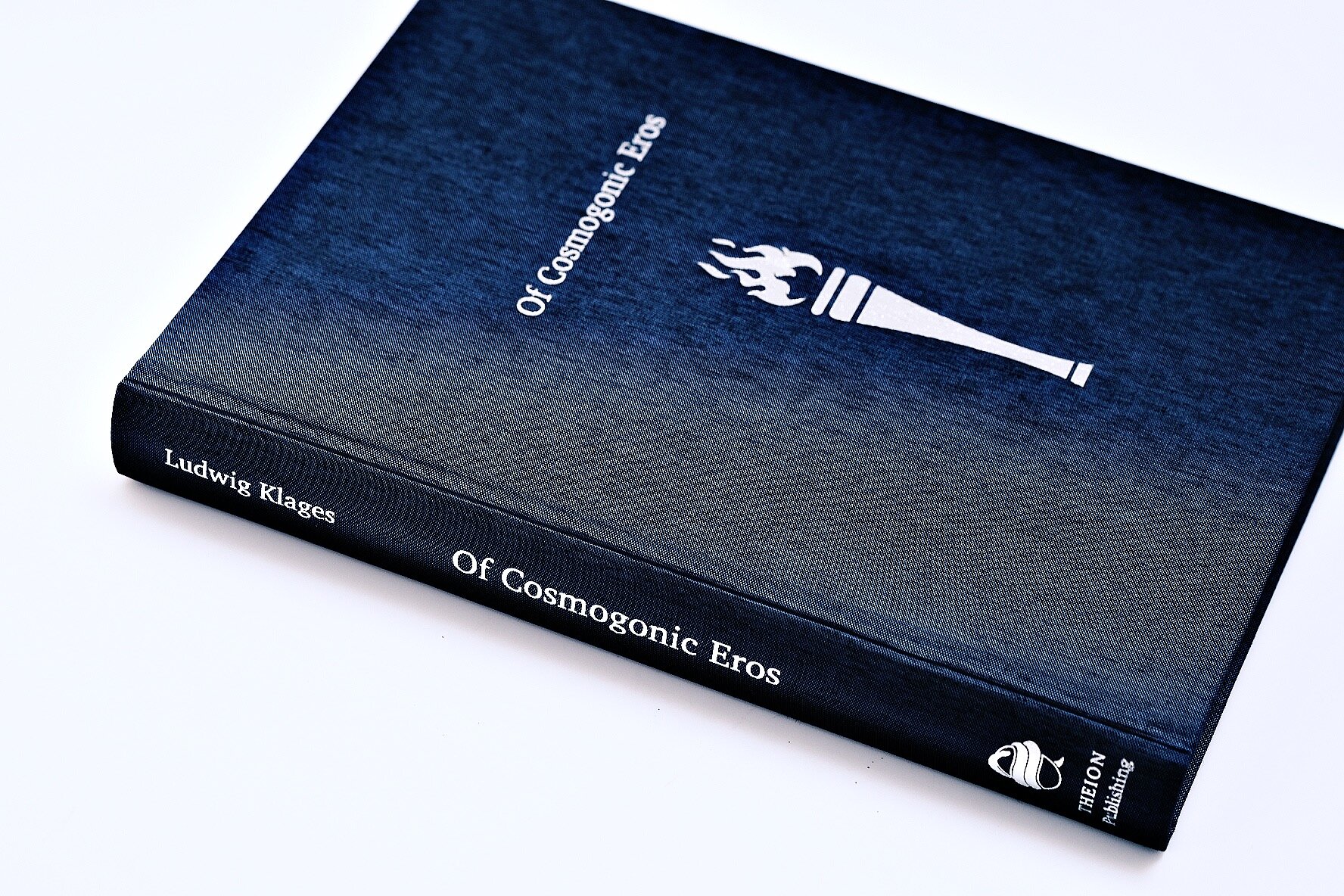‘Of Cosmogonic Eros’ by Ludwig Klages
Review: Ludwig Klages, Of Cosmogenic Eros, 272 pages, Theion Publishing, 2018, translated from German by Mav Kuhn, edited by David Beth and Jessica Grote, ISBN: 978-3-9820654-0-3, 165×235 mm, limited to 745 copies only
Note: This review was first published in the NEW DAWN magazine, July-August 2019, Issue 175
In the words of Professor Paul Bishop, of the University of Glasgow “[W]e might well call Klages the most significant restorer of polytheism since Julian, the Roman Emperor known as 'the Apostate."
Here Theion present us with, for the first time in English, one of Klages’ seminal works: Vom kosmogonischen Eros, or Of Cosmogonic Eros. Providing us with an excellent translation, and filled with many translator’s notes and footnotes for the curious, Theion have given us access to a wide-ranging and systematic introduction by Professor Bishop, explaining the nuance and implications – as well as the technical vocabulary – of the author’s work. As well as some much needed historical and social context, the introduction provides us with everything we need to know in order to embrace the text on its own terms.
Those terms are every bit as incendiary and invigorating as the poetic philosophy of Nietzsche, or as full of depth as the novels of Hesse and the poetry of Rilke, Hölderlin, and Goethe.
Ludwig Klages is all but unknown in English, outside of academia. As a significant figure in late 19th and early 20th Century German Romanticism, he was feted in his native land, receiving the Goethe Medal for Art and Sciences in 1932. Originally courted by the Nazis due to his cultural heft and writings on Lebensphilosophie, he was ultimately attacked by the regime in 1936, and publicly denounced by German newspapers in 1942.
Post-Second World War, he was once again honoured by the new government - proving that his philosophical and cultural contribution is beyond doubt. His thought was admired by individuals like Jewish thinker Walter Benjamin, novelist Hermann Hesse, and famed philologist Walter F. Otto. Trained as a chemist at University, he went on to become an authority in graphology, but it is his writing on a Life-affirming philosophy, for which he is justly remembered and honoured. While others have called his philosophy “irrationalist” or “anti-intellectualist”, this work makes it clear that everything Klages speaks of should be read in the affirmational manner of Nietzsche and others like him.
Klages’ critique of the logocentric - the centralizing primacy of the fixed and discrete, with its need to divide, separate, and categorize everything into a neat box - is fundamentally biocentric and vitalist in nature. In this work he draws upon Ancient Greek mythology, focusing on the figure of Eros, not as some babe inflicting desire on unsuspecting lovers, but as a cosmic force. It brings together and breaks apart, which inspires an ecstasy capable of shattering not only our perception of the world as a fixed thing, but also an awe-inspiring shattering of the boundaries of self.
This “unselfing” as referred to in the text, provides us access to a living, breathing, ensouled cosmos – a magical, very particular kind of animism, in a sense.
The early portion of Klages’ text is concerned with why, and how, he names this force Eros, and not mere “Love”, “Will”, or “Drive”, or desire towards sexual intercourse. That accomplished, he provides us with the first glimpse into the depths of his thought. Soul, or Seele, is the Life-affirming generative principle. Spirit, or Geist, is the principle which divides and separates – something that reduces experience to mere representation, to easy grasping and manipulation. It is Geist which separates us from the body, from experiencing the world as Klages suggests the ancient pagan cultures might have done - via being enthused. Such enthusiasm, Klages notes, is not merely enjoying life. Rather, it draws on the roots of its etymology, which originally meant “to be inspired by, or possessed by a god.” For Klages, the source of such enthusiasm is a hieros gamos or “divine marriage” between the soul of an object, or place (or person) and that of the perceiver. When the two poles come together, there can be an ecstasy which “unselfs” them.
They are drawn out of themselves, catapulted into an experience which is paradoxically momentary; transient, yet also part of some ever-refreshing reality that pulses with Life. Klages is careful to define the concept of “Eros of the distance” which he views as the noblest form of this ecstasy – using the way a landscape may seize the attention of a person, filling them with awe. The landscape remains itself, but by the power of its Soul, it reaches out and connects with a suitably “pathic” Soul of an individual, giving them their own unique experience.
This is, to Klages’ mind, the fundamental difference between the polytheism of the ancients, and the monotheism which some see as the basis of so-called “Western culture”. His critique of monotheism is one which pushes back against the idea of a central defining authoritarianism which he sees as a form of imprisonment. Liberation requires ecstasy, not as form of escape, but as a method of deepening – a kind of katabasis, or undergoing. As the poet Novalis, quoted in the book, says: “The external is an internal raised to a level of mystery.” For Klages, the mystery of the enthusiasm is magically potent – as potent as the Mysteries of the pagan cults. That these inner mysteries can be made into outer reality is why Klages has a chapter “On Ancestor Veneration”. It is why he suggests that the past is always with us, endlessly refreshing us. In Of Cosmogonic Eros we are presented with a subterranean labyrinth of language which may return us to Soul at its centre – if we have the courage to engage.












